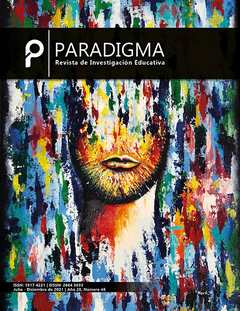Is Reaction Time a Differentiating Factor in Academic Performance? A Study from Kahoot
DOI:
https://doi.org/10.5377/paradigma.v28i46.12839Keywords:
tiempo de respuesta, puntaje, kahoot, learning analytics, testAbstract
This study addresses the influence of reaction time (answer time) on the performance obtained (score) in a conceptual test applied to university students from the Kahoot platform. Data processing and analysis was performed using the IBM SPSS Statistics software. To make the comparison between groups, a one-way ANOVA was carried out, using tertile divisions of the answer time variable in order to look for differences in the means of the subjects who completed the test early, mid, and late. In addition, correlations were made between the relevant variables to help clarify the existing relationship. Answer time was found to be important, but not determinant of the quality of responses. Thus, these findings are a considerable attempt to understand the fundamentals of Learning Analytics, especially in times of pandemic, where digital transformation has proven to be a key ally, if not the best.
Downloads
632
Downloads
Published
How to Cite
Issue
Section
License
Copyright (c) 2021 Universidad Pedagógica Nacional Francisco Morazán

This work is licensed under a Creative Commons Attribution-NonCommercial-NoDerivatives 4.0 International License.
Transfer of Copyright
- The author, when sending the work, states that it is his will to give the Universidad Pedagógica Nacional Francisco Morazán the patrimonial rights that correspond to him as the author of his work.
- The rights here assigned include all economic rights (Reproduction, transformation, public communication and distribution) and are given without limitation in terms of territory; This Assignment is given for the entire duration term established in the current legislation in Honduras.
- The cession of the aforementioned rights does not imply the cession of moral rights over it, because in accordance with the provisions of the Copyright and Related Rights Law, Chapter II, of the Moral Rights, Article 34, Article 25 , these rights are inalienable, imprescriptible, indefeasible and inalienable.
- The research work or document must be original and have been done without violating or usurping rights of third parties, therefore, the work is exclusively authored and owns the same.
- In the case of any claim or action by a third party, as to copyright on the work in question, the author must assume full responsibility for the rights assigned.
- Upon completion of the Rights Assignment Form, the author states that the work has not been published in another way, that the rights on the work have not been assigned and that no encumbrance or limitation on their use or use is imposed on them.





